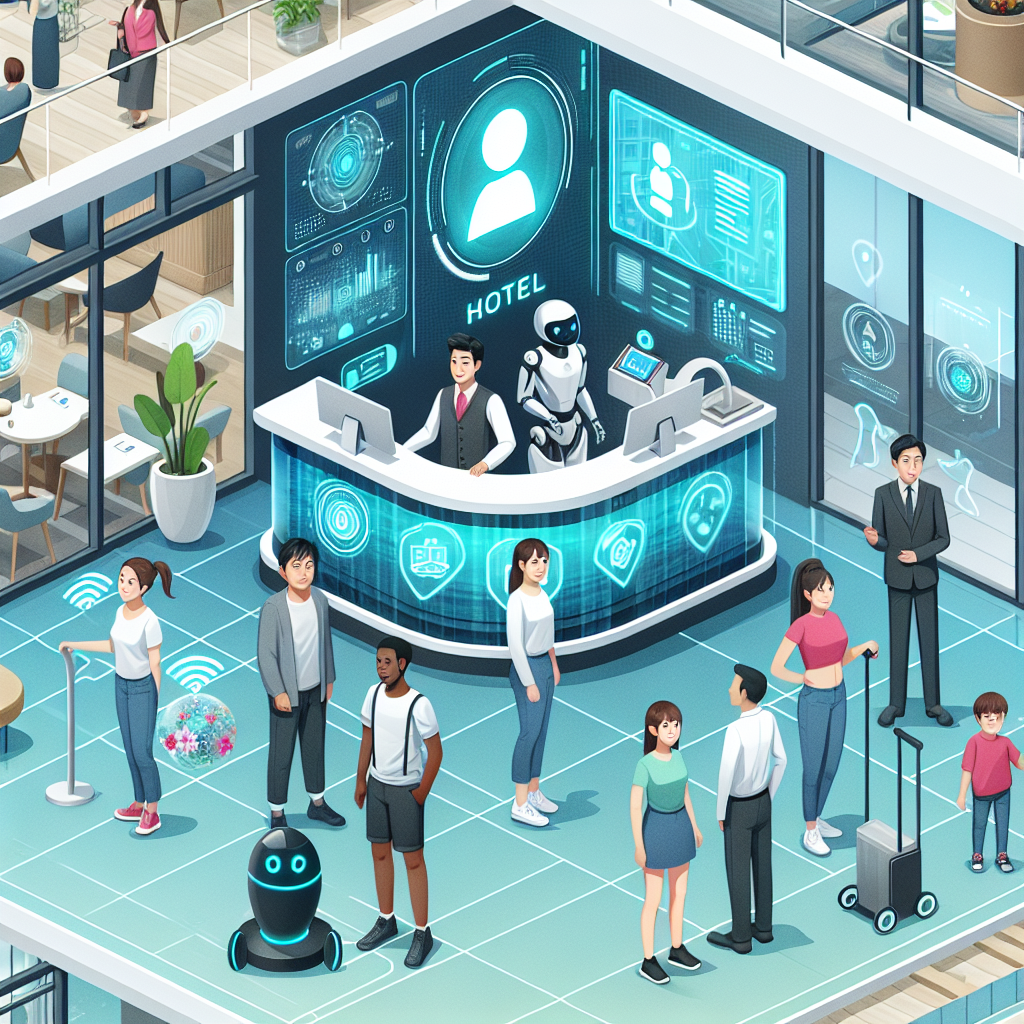The hospitality industry has been significantly impacted by advancements in artificial intelligence (AI) technology in recent years. Hotels are leveraging AI to streamline operations, enhance guest experiences, and improve overall efficiency. From chatbots and virtual assistants to predictive analytics and facial recognition technology, AI is transforming the way hotels operate and interact with guests. In this article, we will explore how AI is revolutionizing hotel operations and the potential benefits it brings to the industry.
AI-powered Chatbots and Virtual Assistants
One of the most prominent ways that AI is transforming hotel operations is through the use of chatbots and virtual assistants. These AI-powered tools are being used to streamline customer service, improve communication, and provide guests with personalized recommendations and information.
Chatbots are being integrated into hotel websites and mobile apps to provide instant responses to guest inquiries, such as room availability, rates, and amenities. They can also assist with booking reservations, checking in and out, and answering frequently asked questions. Virtual assistants, on the other hand, are being deployed in guest rooms to provide guests with information about hotel services, local attractions, and dining options, as well as control room amenities like lights, temperature, and entertainment systems.
By using chatbots and virtual assistants, hotels can provide 24/7 customer service, reduce the workload on staff, and improve overall guest satisfaction. These AI-powered tools also help hotels gather valuable data about guest preferences and behavior, which can be used to personalize future interactions and tailor services to individual needs.
Predictive Analytics for Revenue Management
AI is also being used in hotels to analyze data and predict trends that can help improve revenue management strategies. By leveraging predictive analytics, hotels can optimize pricing, inventory, and distribution to maximize revenue and occupancy rates.
AI algorithms can analyze historical booking data, market trends, competitor pricing, and other variables to forecast demand and recommend pricing strategies. This allows hotels to adjust room rates in real-time based on factors like seasonality, events, and booking patterns, increasing profitability and reducing the risk of overbooking or underpricing.
In addition to revenue management, predictive analytics can also be used to forecast maintenance needs, staff scheduling, and other operational aspects of the hotel. By using AI to anticipate potential issues and plan accordingly, hotels can improve efficiency, reduce costs, and enhance the overall guest experience.
Facial Recognition Technology for Security and Personalization
Another way that AI is transforming hotel operations is through the use of facial recognition technology. This technology is being used for security purposes, as well as to personalize guest experiences and streamline check-in processes.
Facial recognition systems can be used to enhance security by monitoring entrances, identifying guests, and detecting suspicious behavior. This helps hotels ensure the safety of guests and staff, prevent unauthorized access, and respond quickly to security incidents.
In addition to security, facial recognition technology can also be used to personalize guest experiences. By recognizing guests as they enter the hotel or approach the front desk, hotels can greet them by name, offer personalized recommendations, and provide a more seamless check-in experience. This not only enhances guest satisfaction but also improves loyalty and encourages repeat bookings.
Automation for Operational Efficiency
AI is also being used in hotels to automate routine tasks and improve operational efficiency. From housekeeping and maintenance to inventory management and guest services, AI-powered automation systems can help hotels reduce manual labor, increase productivity, and minimize errors.
For example, robotic housekeepers can be used to clean and sanitize guest rooms, reducing the workload on staff and ensuring consistent cleanliness standards. AI-powered maintenance systems can also be used to monitor equipment, detect issues, and schedule repairs proactively, minimizing downtime and reducing maintenance costs.
In the food and beverage department, AI can be used to optimize inventory management, streamline ordering processes, and forecast demand for menu items. By automating these tasks, hotels can reduce waste, improve cost control, and enhance the overall dining experience for guests.
FAQs
Q: How is AI being used in hotels to enhance guest experiences?
A: AI is being used in hotels to enhance guest experiences in a variety of ways, including through chatbots and virtual assistants that provide personalized recommendations and information, predictive analytics that optimize pricing and inventory, facial recognition technology that personalizes interactions, and automation systems that streamline operational tasks.
Q: How does AI improve revenue management in hotels?
A: AI improves revenue management in hotels by analyzing data and predicting trends that can help optimize pricing, inventory, and distribution to maximize revenue and occupancy rates. By leveraging predictive analytics, hotels can adjust room rates in real-time based on factors like seasonality, events, and booking patterns, increasing profitability and reducing the risk of overbooking or underpricing.
Q: How does AI enhance security in hotels?
A: AI enhances security in hotels by using facial recognition technology to monitor entrances, identify guests, and detect suspicious behavior. This helps hotels ensure the safety of guests and staff, prevent unauthorized access, and respond quickly to security incidents.
Q: How can hotels benefit from AI-powered automation systems?
A: Hotels can benefit from AI-powered automation systems by automating routine tasks such as housekeeping, maintenance, inventory management, and guest services. By reducing manual labor, increasing productivity, and minimizing errors, these systems help hotels improve operational efficiency, reduce costs, and enhance the overall guest experience.
In conclusion, AI is revolutionizing hotel operations by providing innovative solutions that enhance guest experiences, improve revenue management, enhance security, and increase operational efficiency. As the hospitality industry continues to evolve, hotels that embrace AI technology will be better positioned to meet the changing needs and expectations of guests, while also maximizing profitability and sustainability.

